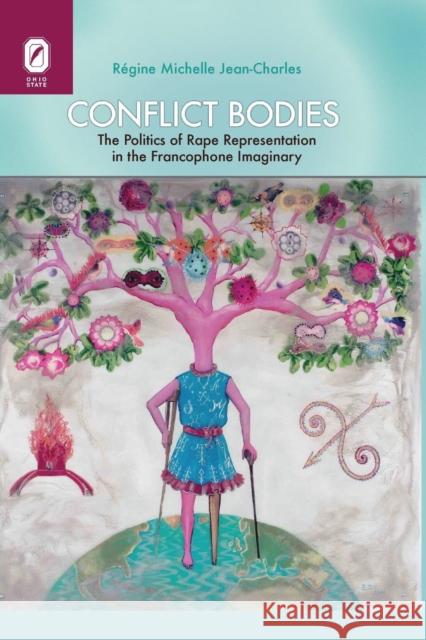Conflict Bodies: The Politics of Rape Representation in the Francophone Imaginary » książka
Conflict Bodies: The Politics of Rape Representation in the Francophone Imaginary
ISBN-13: 9780814252932 / Angielski / Miękka / 2016 / 336 str.
Conflict Bodies: The Politics of Rape Representation in the Francophone Imaginary explores the relationship between rape and narratives of violence in francophone literature and culture. The book offers ways to account for the raped bodies beneath the conflicts of slavery, genocide, dictatorship, natural disasters and war--and to examine why doing so is necessary. Through a feminist analysis of the rhetoric and representation of rape in francophone African and Caribbean cultural production, Conflict Bodies examines theoretical, visual, and literary texts that challenge the dominant views of postcolonial violence. Using an interdisciplinary and comparative framework to consider different contexts--Haiti, Guadeloupe, Rwanda, and Democratic Republic of the Congo--Regine Michelle Jean-Charles illuminates how analyzing survivors' subjectivities, stories, and embodied experiences provides a nuanced understanding of what is at stake in rape representation. Referencing theories from francophone literary studies, transnational black feminisms, and rape cultural criticism to analyze novels, film, photography, drama, and documentaries, Jean-Charles argues that in today's global climate--where one in three women worldwide has been raped, rape is being used as a tool of war, and rape myths circulate with vehemence--traditional "scripts of violence" that fail to account for sexual violence demand refusal, re-thinking, and re-imagining.
Conflict Bodies: The Politics of Rape Representation in the Francophone Imaginary explores the relationship between rape and narratives of violence in francophone literature and culture. The book offers ways to account for the raped bodies beneath the conflicts of slavery, genocide, dictatorship, natural disasters, and war-and to examine why doing so is necessary. Through a feminist analysis of the rhetoric and representation of rape in francophone African and Caribbean cultural production, Conflict Bodies examines theoretical, visual, and literary texts that challenge the dominant views of postcolonial violence. Using an interdisciplinary and comparative framework to consider different contexts-Haiti, Guadeloupe, Rwanda, and Democratic Republic of the Congo-Régine Michelle Jean-Charles illuminates how analyzing survivors subjectivities, stories, and embodied experiences provides a nuanced understanding of what is at stake in rape representation. Referencing theories from francophone literary studies, transnational black feminisms, and rape cultural criticism to analyze novels, film, photography, drama, and documentaries, Jean-Charles argues that in todays global climate-where one in three women worldwide has been raped, rape is being used as a tool of war, and rape myths circulate with vehemence-traditional "scripts of violence" that fail to account for sexual violence demand refusal, re-thinking, and re-imagining.Régine Michelle Jean-Charles is assistant professor of romance languages and literatures and in the African and African Diaspora Studies Program at Boston College.











